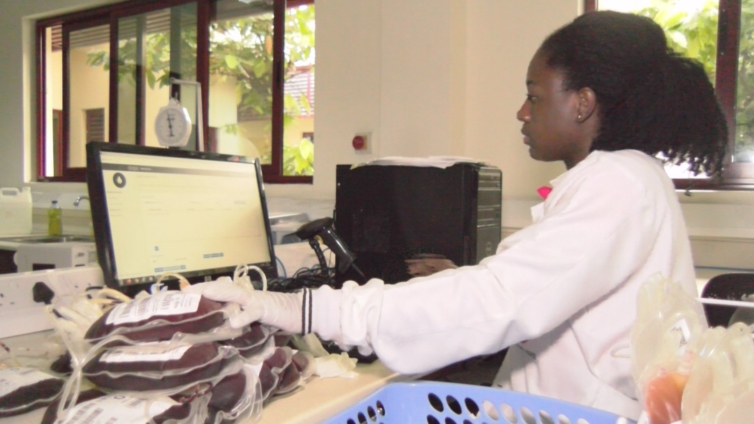"I went to the hospital with my wife and during the doctor’s interview, he asked whether I have donated blood on her behalf for her delivery. When l said l had not, l was directed to the National Blood Service to donate. If it was not for that requirement, I wouldn’t have donated.”
This is Francis Koblah Gadu’s whose pregnant wife was scheduled to deliver on November 13 2020 at the Korle Bu Teaching Hospital in Accra. Prior to this, Francis had serious misgivings about blood donation. He had to donate this time because the hospital policy required that blood is donated before his wife delivers at the facility.
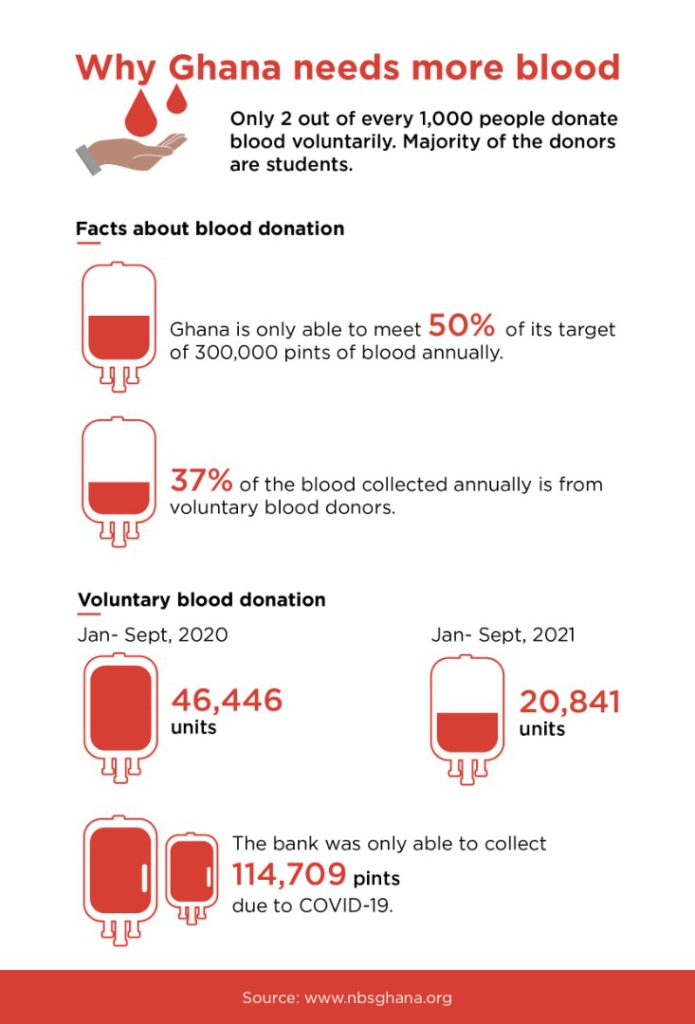
Ghana’s blood donation situation
In Ghana, there is high blood scarcity as the blood banks are not able to collect enough to meet the demand. Majority of these countries are only able to collect 10 donations per 1,000 people.
To replenish its blood supply, Ghana, depends on family replacement blood donors instead of voluntary blood donors. For example, in 2017, Ghana collected a total of 162,226 units of blood of which only 36% was from voluntary, unpaid blood donors while the rest, 64% was from family replacement donors.
The family replacement system is where relatives of people who need blood are asked to donate before the patient is served.
This has far reaching consequences on health care delivery. Patients who cannot find relatives and friends to donate blood for them during emergencies such as bleeding from complications related to pregnancy and childbirth, severe childhood anemia, patients suffering sickle cell disease, victims of trauma, etc., may not recover from their conditions.
“The medical emergencies themselves consume a lot of blood because most of them come in very anemic,” said the Head of the Accident and Emergency Centre of the Korle-Bu Teaching Hospital, Dr. Frederick Kwarteng.
Blood donation campaigns and Covid-19 restrictions
With the pandemic disrupting blood donation services, Dr Kwarteng said he and other medical officers had to devise other means of saving the lives of their patients.
“We try as much as possible to use other means such as hematinic to boost the patient’s hemoglobin levels.” We also try and perform surgeries in such a way that the patient doesn't bleed a lot.
The National Blood Service (NBS) has never met its annual target of 300,000 units of blood. This situation has been worsened by the Covid-19 restrictions.
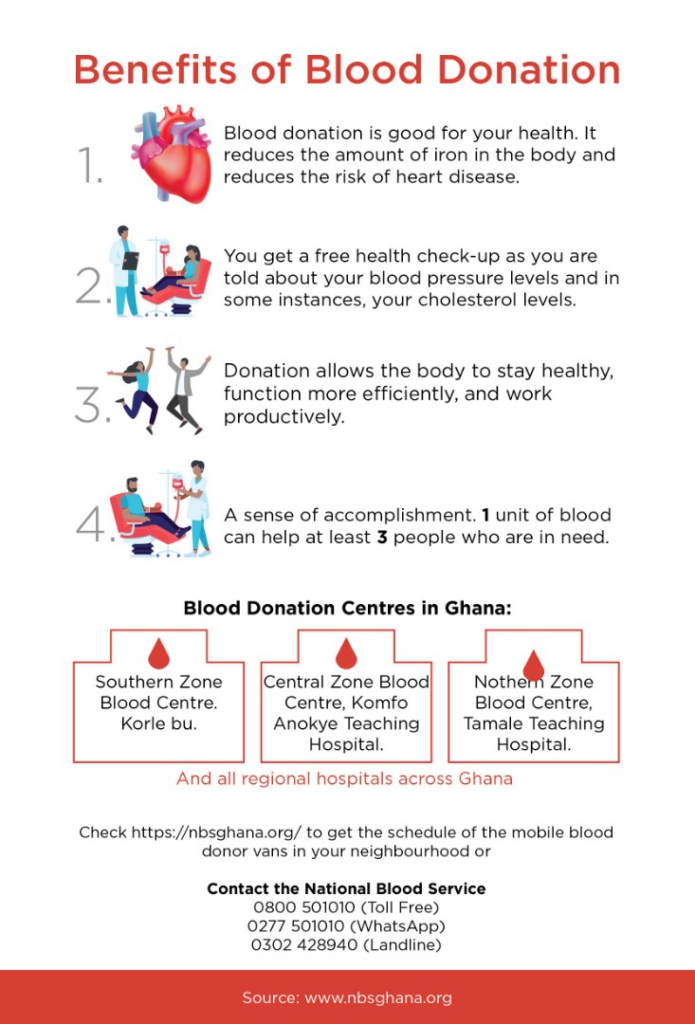
“We have always done less than 50% of our annual projection,” said the Public Relations Officer of NBS, Stephen Addai-Baah.
“For the 1st quarter of 2020, we were able to achieve about 57% of our target which is slightly over half of the 300,000 units of blood projected. It was very promising that at least we would have done better in the 2nd quarter and beyond but due to Covid-19, we were not able to meet our target,” he added.
The National Blood Service (NBS) which supplies many healthcare institutions relies heavily on blood drives to stock its blood banks.
The public relations officer, Mr. Stephen Addai-Baah said, “Due to the Covid-19 pandemic, most of our regular donation drives from the second cycle schools, the churches, organized groups and corporate organizations were cancelled.”
The National Blood Service relied on regular donors during the lockdown. The NBS liaised with the Ministry of Health to provide these donors with letters which allowed them to travel to donate blood during the period when travel restrictions were in place. The Service also had a special arrangement with some radio stations to air appeals for blood donations.
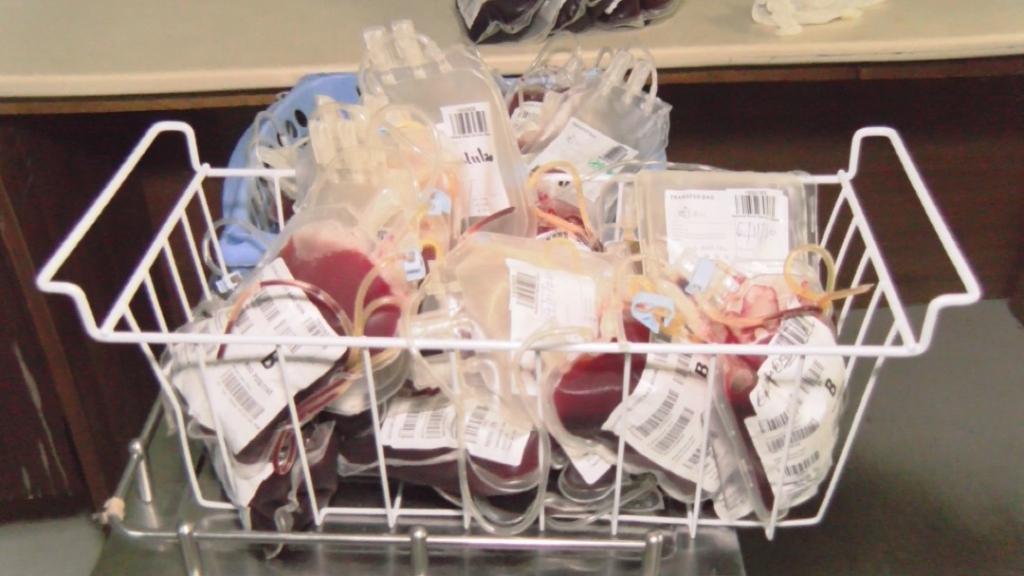
Myths and superstitions about blood donation
In Ghana, many people believe that blood is a precious and sacred substance common to families which should be preserved in the family and not donated to strangers. People also believe behavioural traits can be transferred through blood and therefore prefer to receive blood from a known person or family member.
“I personally don’t understand why I should voluntarily donate blood and then it is sold out to people. That is why I don’t donate,” said 28-year-old Patience Nartey, a university student.
Delphinus Nordor, 65 years, is a retired teacher who has been donating blood for close to four decades. Nordor has received national recognition since he started donating blood in 1981.
“There was a lady who was pregnant and she went to the hospital. They wanted the husband to donate but he had travelled; I went to the hospital with her and showed them my donation certificate. They used my certificate as a credit for her,” said Nordor.
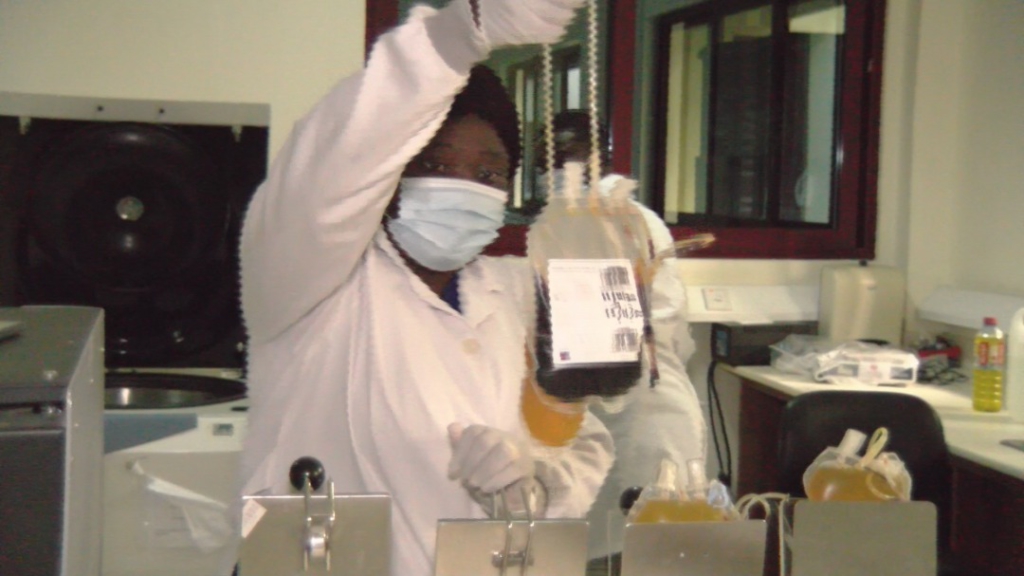
Delphinus Nordor does not believe in the myths surrounding blood donation. “Personally, I don’t think the Blood Service would go and give it to somebody for ‘spiritual’ (juju) purposes,” he stated.
An officer with the Ghana Prisons Service, Mary Martina Vumado has donated blood for more than thirty-five times. “When I was a child, I heard that when pregnant women go to deliver, most of them die due to loss of blood so I decided to be a voluntary blood donor.” she said.
For Delphinus Nordor, blood donation forms part of his Christian beliefs. He said “Blood donation is the best thing you can do for somebody because it’s better to share your blood than to shed it.”
Blood donor ‘contractors’
There exists a category of people who take advantage of relatives of patients who require blood by demanding payment for blood donated. These ‘contractors’ throng health facilities ready to take advantage of desperate patients and their relatives, particularly those who come from outside Accra who may not know someone to donate blood on their behalf.
These ‘contractors’ charge the patient’s relatives between 50-60 cedis for each pint of blood they donate. But Public Relations Officer of NBS, Stephen Addai-Baah says they have put measures in place to ensure the perceived abuse of the system is curtailed. “We do not monetise blood donation.” Public Relations Officer of NBS said.
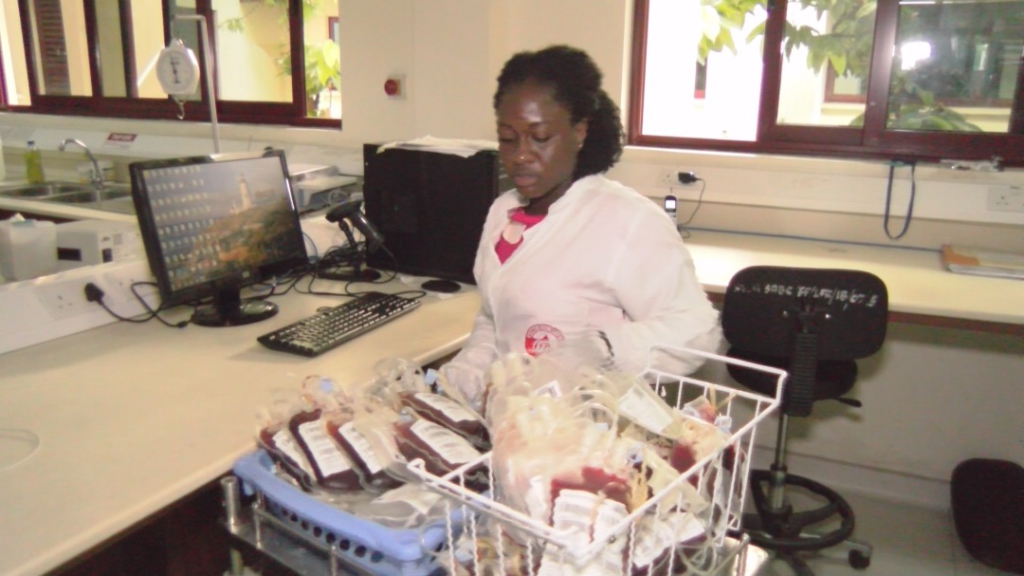
He added, that blood is never sold in Ghana, but patients pay a processing fee of 50 to 200 Ghana cedis (about $11 to $45), to cover expenses. Patients who cannot pay the processing fee but who urgently need a blood transfusion do receive one, but they must arrange to pay the fee at a later date.
Increased stocks may also be needed to support COVID-19 patients with severe sepsis or requiring extracorporeal membrane oxygenation support.
With the Covid-19 pandemic still affecting health systems worldwide, a clear, proactive and consistent communication strategy is key to addressing and overcoming donor anxiety and fears which often stem from lack of awareness or misinformation.
Also, regular voluntary non-remunerated blood donation is a key component for any successful blood programme. Donor retention is therefore important in further improving the safety and quality of the blood supply.
****
The author Beryl Ernestina Richter is a fellow of the Africa Women Journalism Project. This report is supported by the Africa Women Journalism Project (AWJP) in partnership with the International Center for Journalists (ICFJ). The writer can be reached via richhterberyl54@gmail.com
Latest Stories
-
Lawrencia Ama Yeboah shines as 2nd runner-up at Miss Orient Tourism Global
8 minutes -
‘Vincent Atinga deserves Black Stars call-up’ – GoldStars CEO Akwasi Adu
9 minutes -
Bolga pharmacist killing: Pharmaceutical Society demands justice
13 minutes -
The Spirit of Hiplife lives as Ghana’s beat of identity and influence
31 minutes -
Queen Titiaka joins President Mahama, Ministry of Environment, to launch “One Child, One Tree” initiative on World Environment Day
33 minutes -
Brighton boss Fabian Hurzeler ‘delighted’ with Tariq Lamptey contract extention
38 minutes -
Nurses’ strike escalates, disrupting healthcare services nationwide
46 minutes -
Top 6 artistes who define Ghanaian music
50 minutes -
Beyond the Veil of Religion: Where is the Love We Were Promised?
1 hour -
Asante Gold Bibiani donates 250 desks to Queens Girls’ SHS
1 hour -
AUCB and Huston-Tillotson University sign MoU to promote academic and cultural exchange
2 hours -
GH₵1 Levy: Abena Osei-Asare insists the Minority aren’t against fixing of the energy sector
2 hours -
Court remands NPP sympathiser accused of assaulting JoyNews reporter
2 hours -
Abena Osei-Asare defends BoG’s performance amid economic challenges
2 hours -
Groupe Nduom marks World Environment Day with environmental advocacy initiative and donation at Presec staff cluster of schools
2 hours

